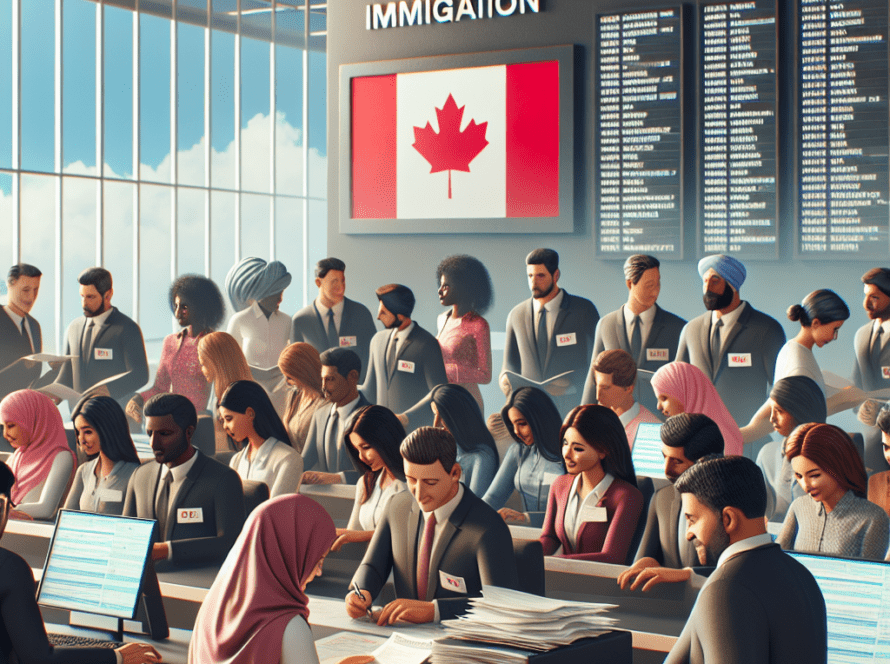Canada’s 2025 Work Permit Changes: More Rejections, Longer Waits

Canada’s Stricter Work Permit Regulations: What You Need to Know
As Canada gears up for its federal election on April 28, 2025, the government has introduced tighter regulations on work permits in a bid to address pressing housing shortages and the strain on public services. This significant policy change is set to reshape the landscape for temporary foreign workers, leading to longer processing times and increased uncertainty regarding their legal status in the country.
Key Changes and Their Implications
1. Increased Processing Times:
The Labor Market Impact Assessment (LMIA) processing times have skyrocketed from an average of 58 business days in September 2023 to a staggering 165 business days by March 2025. This delay is concerning, as Service Canada is still processing applications submitted nearly a year prior. The backlog is attributed to a government decision to limit immigration numbers, a move aimed at alleviating pressure on Canada’s infrastructure and housing market.
2. Revised Immigration Strategy:
In a shift towards managing population growth, Ottawa is now promoting voluntary departures, which could affect many potential migrants and those considering extending their stay in Canada. This strategic pivot underscores the growing tension between the country’s immigration goals and the realities of housing availability.
3. Continuation of Work Rules:
Despite the delays, temporary foreign workers are allowed to continue working while awaiting their LMIA if they secure one within 60 days of applying for a work permit renewal. However, the lack of clarity regarding the rights of individuals who lose their status during these protracted wait times leaves many in a precarious situation.
4. Surge in Domestic Applications:
There has been a notable increase in work permit applications from within Canada. Unfortunately, this surge has coincided with a rise in rejection rates, primarily due to the overwhelming backlog, further complicating the situation for both applicants and employers.
5. Status for Undocumented Workers:
The Liberal government’s previous commitment to granting legal status to undocumented workers has now been restricted to specific sectors. This limitation diminishes the hope for many living without legal documentation, highlighting the challenges they face in accessing essential public services.
The Political Landscape
As the election date approaches, Prime Minister Mark Carney’s promise to temporarily cap immigration resonates with public concerns over housing affordability and the capacity of public services. This shift in policy may signal a departure from Canada’s traditionally welcoming stance towards immigrants, raising questions about the future of the nation’s labor market and its reputation as a haven for skilled workers.
Navigating the New Environment
For those contemplating a move to Canada or seeking work opportunities, it is crucial to:
- Prepare for Delays: Anticipate longer wait times for LMIA approvals and work permit renewals.
- Submit Complete Applications: Ensure that applications are thorough and submitted on time to avoid losing legal status.
- Stay Informed: Keep abreast of updates from Immigration, Refugees and Citizenship Canada (IRCC) and Service Canada regarding any policy changes.
- Seek Support: If encountering documentation issues, seek legal assistance or community resources.
Conclusion
Canada’s evolving immigration policies reflect an intricate balance between economic needs and housing realities. While the country continues to value skilled workers, the tightening of LMIA processes and status regularization efforts indicates a more complex and uncertain landscape for temporary foreign workers. As the nation approaches its federal election, staying informed and prepared will be essential for those navigating this shifting environment.
In this climate of change, understanding the implications of these new regulations is paramount. For anyone looking to work in Canada, proactive measures and awareness of the evolving immigration landscape will be key to successfully securing employment and legal status in the country.



